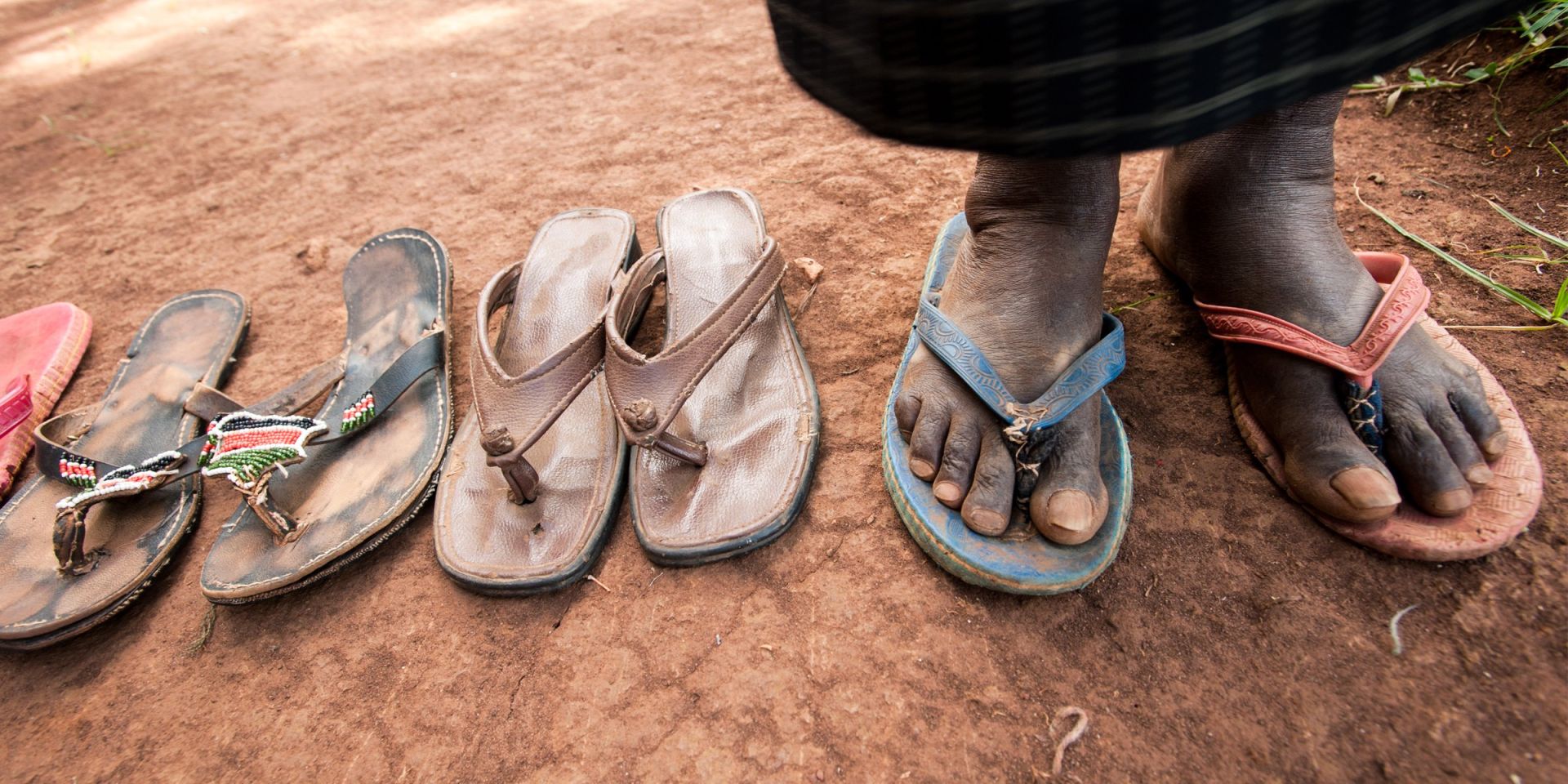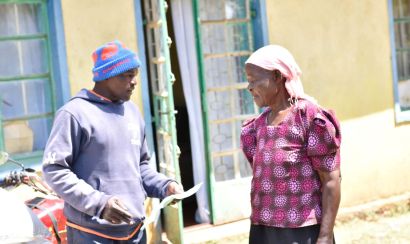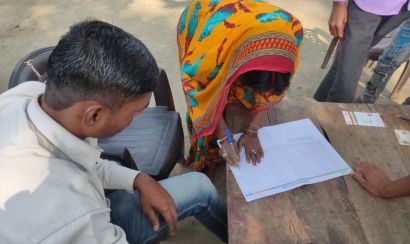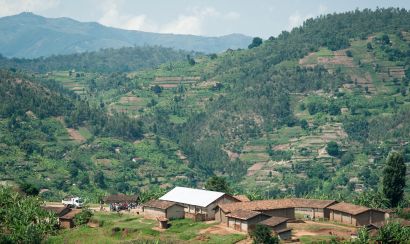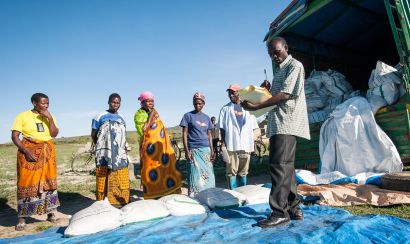The Access Challenge in Rural Kenya
Meet Grace Khasoa
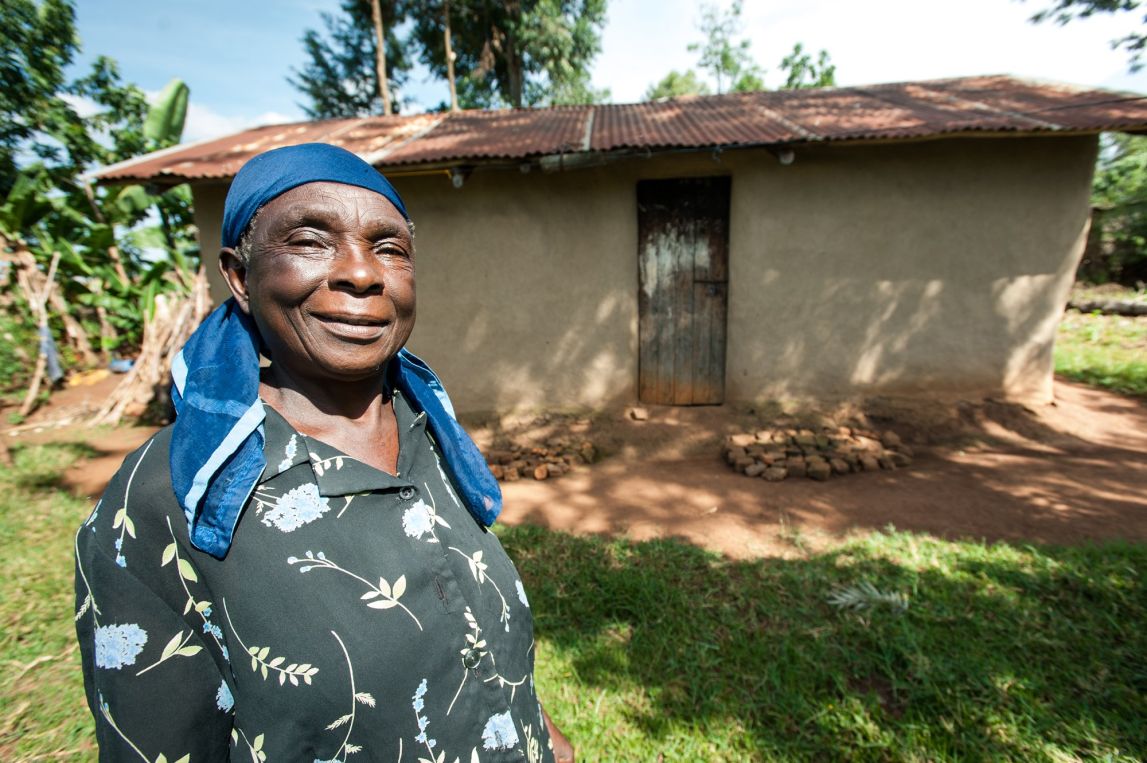
Grace Khasoa insists she’s too old to wake up early. “I’m very old, so I wake up at seven in the morning now.” Grace, a widow, lives alone with her granddaughter, Gladwin. Her five children are all adults, with homes and families of their own.
At 67, Grace’s age means some things are more difficult for her. “Growing old means I’m no longer as strong as I used to be!” she says. “A place that would take me thirty minutes to reach now takes forty minutes or even one hour. Old age brings a lot of challenges.”
One thing that has gotten easier, though, is Grace’s ability to access farm inputs. That’s because in 2011, she enrolled with One Acre Fund, and has been receiving farm inputs delivered within walking distance of her farm in Mulimani village ever since.
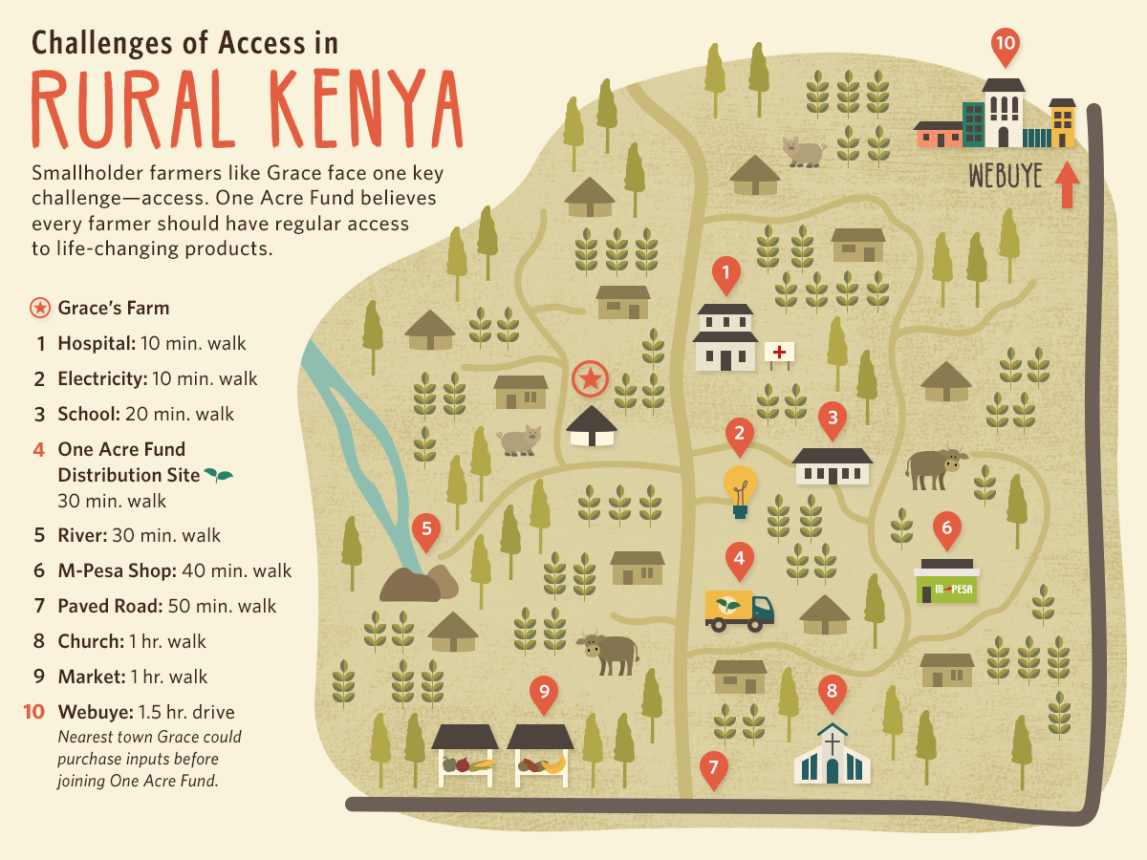
Before joining One Acre Fund, Grace would travel to Webuye to purchase seed and fertilizer. Webuye, the nearest town that sold the inputs she needed, was located one and half-hours away by car. Forced to spend precious time and money just to transport her inputs, Grace was barely able to make ends meet, let alone invest in her farm.
Grace’s explanation of how challenging it is to access the goods and services she needs is deeply personal, but her experiences are not uncommon for smallholder farmers living in rural Kenya. In the following interview, Grace puts a human face on the access challenge in rural Kenya.
One Acre Fund delivers inputs to your village, within walking distance of your farm. How did you feel when you had to travel far to get inputs?
When I had to buy inputs in Webuye, I would waste a lot of time on the road. It was very far away, and sometimes I did not plant maize because I did not have money to go to Webuye.
When I could afford to go to Webuye, I always felt that I was supposed to be happy that I was getting inputs, but just the thought that I had to go very far to get them made me feel tired even before I started the journey.
When I joined One Acre Fund, the delivery site was brought even closer to me. All I have to do is to walk to the place! This has saved me money and time.
For people who don't live in the village, can you explain to them why having inputs delivered near your home is so helpful?
When One Acre Fund brings the inputs to us, near our homes, they save us a lot of the energy and resources we would spend getting inputs from places that are very far away.
People who live in the village are poor people who depend on the little they have to survive. Being able to buy and transport something like maize seed to plant is not easy.
Also, the terrain is not like the terrain in urban areas. Here, a place that is one kilometer away takes a longer time to reach because one has to cross rivers and climb mountains, not just walk down a road.
What prompted you to join One Acre Fund?
In this land, we as Luhya people love ugali. When that is not available, we feel very bad. It’s like just taking tea— without tea, you don’t have energy to do anything.
Life before One Acre Fund was very hard because I did not have ready access to inputs like maize seed or fertilizer. I used to harvest two bags of maize on a half-acre of land, which was not enough to feed my granddaughter and me. I would go to the markets to buy sweet potatoes and other vegetables, but the market was far, and it was an additional expense.
After I joined One Acre Fund in 2011, life changed for the better. The first year that I planted with One Acre Fund, I harvested nine bags of maize. This year I have harvested my maize but have not shelled it yet, but I am confident. I now regularly grow enough maize to feed myself and also pay school fees for my granddaughter.
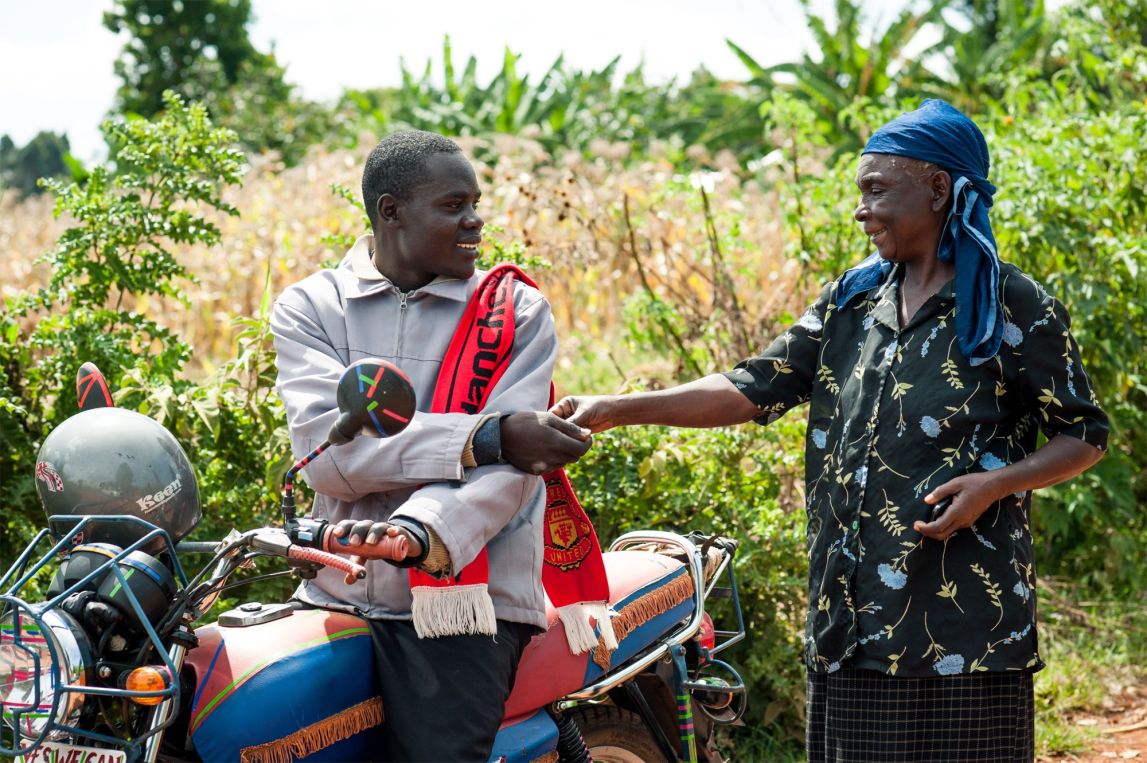
How frequently do you travel to Webuye now?
When I’m ok, I can go there just once a month to do my monthly shopping. I also buy things that my granddaughter needs, like textbooks and school items. It’s very far and also expensive, but I can’t get that stuff in the village.
When I’m sick though, I have to go there every week to buy medicine and get seen by the doctor.
Tell us more about your granddaughter.
Gladwin is 15 years, in form 2 in High School. She wants to be an engineer. She is motivated to be a civil engineer because she wants to make the roads in our village better since they are in a bad state. She has a hard time getting to school sometimes, especially when it rains since the roads are not passable.
Do you ever find yourself asking for help to get what you need?
When I have money I sometimes pay people to come and help with chores, like going to the river and splitting firewood. I’m glad One Acre Fund has the group system— my group members help me with the digging on my farm.
Asking for help makes me feel good and bad at the same time. I feel good because I can rest and save on time, and bad because I have to spend money to get the help that I need.
What is the number one thing you wish was closer to your home, and why?
We have an M-pesa around here, but it would be nice to also have a bank. But what I would really love is to have a better hospital and chemist where I buy my medicine closer to my home. The hospital here and the chemist don’t always have what I need, so I have to travel to Webuye to get medicine.
For an old woman like me, it can be scary at times. Imagine a situation where I fall sick at night or during the day and I’m all alone. How will I get to the hospital? Once, one of my neighbor’s children almost died because she could not get medicine and proper medical care in time. As a mother, I felt so much pain on her behalf.
